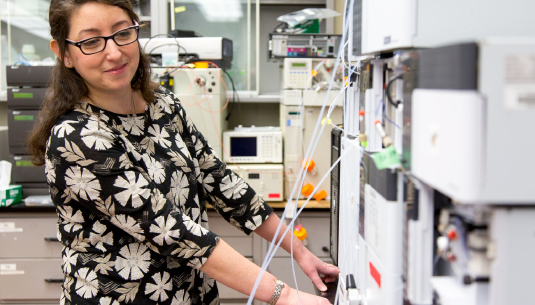
Beyond the rhetoric of sustainable ag
Promoting the virtues of more sustainable cropping systems can only get you so far. Farmers need new crops and new cropping systems that create new value opportunities for them that also enable more environmentally friendly production practices. For over a decade, UMN’s Forever Green Initiative has been breeding new varieties of crops—such as kernza (intermediate wheatgrass), pennycress, alfalfa, perennial flax, winter barley, winter camelina, winter and spring pea, and others—and trialing new production practices—that combine summer-annual, winter-annual and perennial crops—to create these new win-win value opportunities.
From crops to proteins
New crops and cropping systems are necessary but not sufficient to secure more sustainable ag. systems. Finding efficient ways to process and formulate new plant-based protein ingredients that have commercial value is also key to securing sustainable farm to fork solutions. UMN’s Plant Protein Innovation Center, with almost 40 corporate, non-profit and university affiliates is designed to do just that.
GEMS Services Used
Data Sciences and sustainable cropping solutions
Growing the right crop, in the right cropping system, at the right time is key to producing more sustainable sources of commercially- and socially-valuable plant-based proteins. To successfully make this happen involves a complex interplay of genetic by environment by management by socioeconomic factors, precisely the types of data management and analytic problems GEMS Informatics is designed to tackle. To bring these sustainable protein solutions to scale also requires novel and incentive-compatible public-private partnerships that can utilize smart data sharing protocols to enable pre-commercialization research that respects the IP rights and data sensitivities of participating firms, farmers and university scientists.
Results
With funding from the Walmart Foundation, FGI, PPIC and GEMS Informatics at the University of Minnesota are pooling their considerable innovation, intellectual and institutional assets. These three centres are working with key strategic partners to catalyze the creation of an agile, public-private initiative to bring new sustainable protein value chains into the mainstream of Minnesota and midwestern agriculture.
